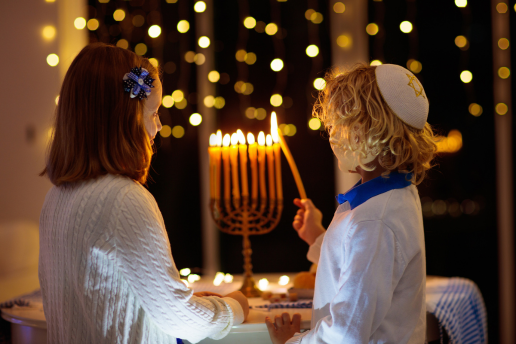The holidays are supposed to be a time of joy, family togetherness, and celebration. For those who are parenting kids who have experienced trauma or loss, we know that this Continue Reading The post 10 Tips on How to...
 The holidays are supposed to be a time of joy, family togetherness, and celebration. For those who are parenting kids who have experienced trauma or loss, we know that this season can also be quite stressful to navigate. What are the practical things you can do to help your family enjoy the holiday season with kids who have experienced trauma?
The holidays are supposed to be a time of joy, family togetherness, and celebration. For those who are parenting kids who have experienced trauma or loss, we know that this season can also be quite stressful to navigate. What are the practical things you can do to help your family enjoy the holiday season with kids who have experienced trauma?
Why Does Your Child Struggle During the Holidays?
Many factors contribute to the stress and anxiety that our adoptive and foster kids can feel at this time of year. In addition to the typical anticipation and hyped-up atmosphere that our kids experience in school and the community, there are also significant changes in regular routines, expectations, input or stimulation levels, and diet that happen at home.
 Changes in Routine Can Trigger Your Child
Changes in Routine Can Trigger Your Child
All these changes can trigger memories of what they have lost, especially if they’ve come to us with experiences in their family of origin that they can consciously remember. Even if your child doesn’t remember much about his life before joining your family, the irregularities of the holiday season can increase his anxiety about his place in life or your home.
During a regular week, your child has come to depend upon a predictable routine. While the holiday season activities are intended to be fun breaks from the norm, it’s noteworthy that these changes are also disruptions to consistency for your child.
Changes Also Heighten Sensory Overload
Add in the holiday music that is everywhere. And television specials, while fun and a cherished tradition for many, change bed-time routines many nights. Gifts are being spied upon in their hiding places. And the food – sugar overload is an understatement, right?
There are seasonal decorations, new colors, and lots of lights everywhere your child looks. If your child struggles with sensory processing during the rest of the year, the holidays can be almost unbearable to his brain and body. That overload drives challenging behavior in many kids.
We must find ways to build and enjoy cherished traditions with our adopted and foster kids. Traditions help our kids feel anchored into our larger family story and give us a way to transmit the values we hold dear. We have a few ideas for ways that you can enjoy the season with your whole family, even if the holidays are stressful and triggering for your foster or adopted child.
 10 Tips to Enjoy the Holidays with Kids Who Have Experienced Trauma
10 Tips to Enjoy the Holidays with Kids Who Have Experienced Trauma
Check with your child to learn more about his traditions, cultural experiences, and memories that carry meaning to him. Plan ways he can help you incorporate those things into your whole family’s holiday experience.
Be mindful of your child’s changing perspective on holidays and his feelings about his losses or previous history. It might not be a conscious “sabotage” of the family experience – it might be a new or different level of processing his understanding of his story.
Don’t take your child’s struggles or behaviors personally. Shift your mindset and don’t assume malicious intent. For example, “My child is struggling right now” as opposed to “My child is being so selfish and wrecking our holiday meal.”
Go to the child to understand what he is feeling. Build trust with him, but also establish healthy boundaries and realistic expectations for his behavior. You can say, “I’m sorry you are struggling. This behavior is not safe. Can we take a walk together to work through your feelings more safely?”
Maintain basic routines as much as possible during the holidays. Of course, there will be some valuable exceptions to the usual schedule. Plan for those events, but keep your daily routine as consistent as possible. When it must change, give your child plenty of notice. If he’s old enough, talk about ways to work through those changes together.
The suspense or anticipation of the holidays can be triggering for a child who has experienced trauma. Ease his anxiety by talking through the emotions that surprises can evoke. If you sense that he has unrealistic expectations, help him identify those. Then plan together for setting a better balance of healthy and mismatched expectations.
Reduce the number of gifts that your child receives. Too many things can be overwhelming and overstimulating. Be creative with the type of presents that you give. Consider that connection-building experiences together can be more purposeful than lots of stuff.
Teach your child the value of giving to others. Here again, be creative in teaching your child to express care to others. Time spent with a loved one teaches the value of being present. Volunteering in your community communicates your principles of generosity and connection to something larger than themselves.
It’s okay to set boundaries and limits for your holiday experiences. Extended family or case managers might not understand at first, but you are the gatekeeper of your home. You have to advocate for what works for your family this year. This goes for gifts, activities, food or treats, and visitors alike.
Take care of yourself during the holiday season. Managing your family’s routines, traditions, and your child’s experiences are all hard work. We can help our kids regulate so much more effectively when we are rested and regulated ourselves.
This article was originally published by Creating a Family on December 2, 2020. View original post here.
The post 10 Tips on How to Enjoy the Holidays With Kids Who Have Experienced Trauma appeared first on CHLSS.


